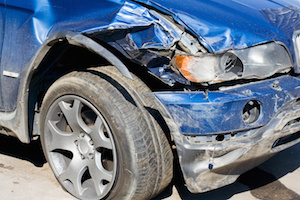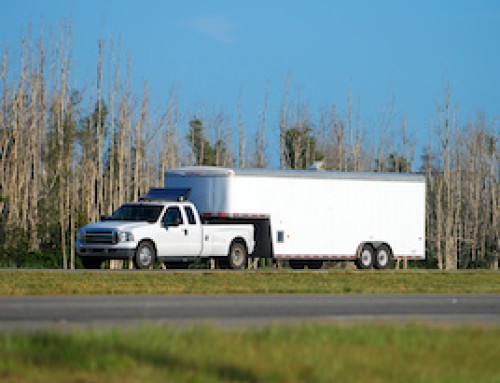 You probably get into your car every day without giving much thought to having an accident. But with more traffic on the roads and more distracted drivers, it’s no surprise that auto accidents are continuing to rise. If you get into a car accident and your car is deemed a total loss, will you know what to do? Handling a total loss does not need to be confusing and as stressful if you know what to do and the basis of how a total loss is determined. In fact, the more you know the faster you can get back on the road!
You probably get into your car every day without giving much thought to having an accident. But with more traffic on the roads and more distracted drivers, it’s no surprise that auto accidents are continuing to rise. If you get into a car accident and your car is deemed a total loss, will you know what to do? Handling a total loss does not need to be confusing and as stressful if you know what to do and the basis of how a total loss is determined. In fact, the more you know the faster you can get back on the road!
With the soaring costs of auto parts and labor to fix damaged vehicles, it is no wonder that more cars are being considered a total loss than repairable. Consider this for a minute. Your car is only 4 years old when you get involved in a front-end collision. Upon inspection, you see your car is still driveable and the repairs don’t look too significant. However, when the adjuster does his/her inspection of your car, you are advised it is a total loss. Now what?
What Makes a Car a Total Loss?
A car is deemed a “total loss” when the cost of repairs exceeds the actual cash value (ACV) of the car. Now, although the damages to your front end didn’t look too costly to you, the inspection revealed a high likelihood of hidden damages that may not show up until the repairs have begun. Here is what you need to know about dealing with a total loss.
ACV and How it Computes to a Total Loss
Let’s be clear that sometimes a total loss is hard to determine due to varying factors and some states differ in how it is calculated. In North Carolina, the damage only needs to exceed a certain percentage (75%) of a car’s value to be determined a total loss. The ACV of a car, established by the insurance industry, is established by many variables to include:
Type of Damages Sustained- The location of the damages will help to determine the likelihood of “hidden” damages found, once the repairs are underway. Having damage to the front end of your car may result in further damages found in the radiator, air conditioning, etc. The repair shop needs to be able to repair the car “safely.”
Age of the Car- If your car is 10 years or older, it will be easier to declare a total loss following a car accident, due to depreciation, among other factors with an older car.
Condition of the Car- If your car, prior to the accident, was in excellent condition with low mileage and no prior damage, then your ACV will be higher than the same year car with high mileage, lots of dings, scratched paint, and poor condition.
Market Value of the Car- This can be achieved by contacting dealers in your specific area to find the sell price of vehicles in the like, kind, and condition of yours.
When Your Car is a Total Loss
If your car has been declared a total loss, then you do have options. You can keep your totaled car if you choose, but keep in mind you will get less on the claim payout. The claim payment will be the established ACV (actual cash value), less the salvage value, less your deductible (if you filed it through your collision/comprehensive coverage). You can take that payout and proceed to drive it damaged (although it must pass the state inspection to drive on the road) or you can choose to repair or restore your car. *You will have to obtain a salvage title from N.C. DMV showing this car is salvage.
If you choose to take the ACV of your car, your insurer (if filed under Collision/Comprehensive) will take the salvage and notify DMV. Salvage buyers can then buy the salvage from the company. If you are the owner, you will receive the claim payout for the actual cash value of the car, less any applicable deductibles. However, if you have a lien on the car, the lienholders name will be on the check.
Paramount Insurance Understands Your Car Insurance Needs
Being involved in an auto accident is never fun and can create quite a bit of stress. However, if you know what to do following an auto accident and how the claims process works, it can reduce the amount of stress. Keep in mind that we, your local N.C. independent insurance agent, are here to assist with any questions or concerns you may have regarding total losses, your car’s actual cash value, or your N.C. auto insurance policy. Give us a call today at 866-869-3335.

 Tom's Blog
Tom's Blog



